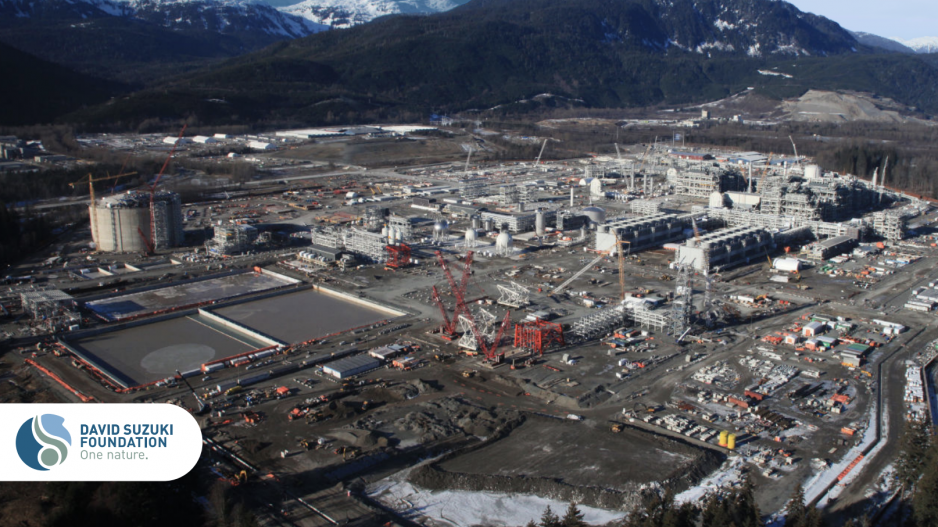A June 6 opinion piece by First Nations LNG Alliance CEO Karen Ogen about liquefied natural gas (LNG) and the David Suzuki Foundation’s recent report opens with a definition of “cherry-picking.”
But Ogen herself engages in a textbook case of cherry-picking in seeking to undermine the report’s conclusion that LNG is not a climate solution, but rather a climate problem.
The report is a review of the latest peer-reviewed literature on LNG, methane, climate change and the accelerating clean-energy transition. It also draws on reports from respected authorities like the International Energy Agency.
The author, Daniel Horen-Greenford, is a postdoctoral fellow at Concordia University with a PhD in ecological economics and climate science.
The report was peer reviewed, and it tells a simple truth: The argument that LNG can help bridge from dirty coal to clean energy sometime in the future is long past its best-before date. Selling more LNG – a fossil fuel with, at best, a slight emissions advantage over coal – will add to the world’s climate woes. Renewables have won the race and the world should switch course and invest at massive scale in deploying them.
Regarding the claim that the report entails cherry-picking a body of research, Ogen focuses on one citation, a study looking at Pennsylvania. She writes that the report, “quotes a 2018 U.S. study that cites methane emissions in Pennsylvania and extrapolates them to British Columbia.” Ogen ignores the 140 other citations in the report, including a 2021 study on methane emissions from sa国际传媒’s gas fields.
Furthermore, Horen-Greenford specifically acknowledges that government is regulating methane emissions and industry is making progress toward the 2030 target of a 75-per-cent reduction. However, he points out that this does not affect the report’s conclusions: “Even if fugitive emissions could be totally contained – i.e., methane loss rates were reduced to near zero – there is still no room in a Paris-compliant energy transition for more gas production or consumption or sustained high levels.”
So, to be clear, the column fixates on one study referenced in the report, waves it about because it isn’t from sa国际传媒, implies the report’s findings were all premised on one extrapolation when there is no such extrapolation. Then, based on having slayed this strawman, the column conveniently throws out the report’s findings – findings that are inconvenient to the LNG industry.
Climate scientists are clear: We cannot build more fossil fuel infrastructure if we wish to have a livable planet. and the do not equivocate or hedge: Humanity can no longer delay and can no longer develop fossil fuel projects.
However, they also have good news: Clean-energy technologies have improved dramatically in recent years, costs have fallen and demand for fossil fuels is being destroyed as the world shifts to better, cleaner, healthier technologies powered by clean electrons. As a case in point, on the day last week that , a Greek company announced a in Alberta.
When we talk about a transition to clean energy, evidence matters. Meaningful discussions can’t be based solely on industry justifications.
Tom Green is a senior climate policy adviser at the David Suzuki Foundation.
Editor's note: This column originally stated that Ogen cited one study that looked at Texas. The study looked at Pennsylvania.

